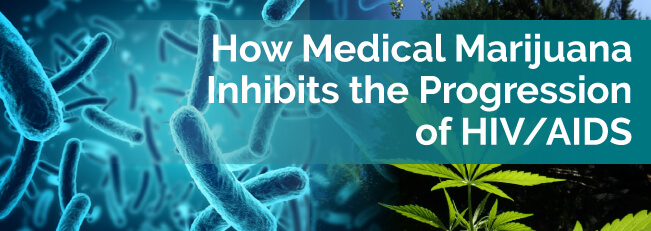
More than 500,000 Americans have died from HIV/AIDS. At the time of writing, there’s no cure for the fatal, painful disease. Like cancer, HIV/AIDS is a life-threatening condition that demands the discovery of a cure.
But, what if the answer to this problem has been right under our noses for decades? Medical marijuana may serve as a huge boon in the fight against HIV/AIDS.
The research we have so far looks very promising. It suggests that we can use marijuana to prevent the progression and mutation of HIV.
Did you know HIV originally came from a chimpanzee? After people hunted and ate the meat from a certain breed of chimpanzee, they began experiencing HIV and AIDS symptoms. Thus, the simian immunodeficiency virus (SIV) became the human immunodeficiency virus (HIV).
Due to the origins of HIV and our genetic similarity to monkeys, we can use monkeys as test subjects to simulate how something will affect a human. It can never truly replace human results, but it gives us a head start on research so we can determine whether to move forward with human testing.
In 2011, Patricia Molina and more than 10 other researchers examined the effects of THC on rhesus macaques with the simian immunodeficiency virus. They administered THC to the macaques 28 days before inoculating them with SIV, and then again six months after inoculation.
The results were astounding. While we originally thought THC would only suppress a patient’s immunity and make symptoms worse, it made the macaques live longer. Molina and her associates hypothesized this delay in progression resulted from reduced inflammation, weight retention and lower levels of the virus thanks to THC.
Molina and her fellow researchers published another paper in 2014 documenting their study on the effects of THC on the gut cells of SIV-infected macaques. Since the stomach is a common part of the body for HIV to spread, examining the gut can help us relate the research to many HIV cases.
Over the course of 17 months, the team inoculated the macaques with THC. As time went on, the damage in the subjects’ stomachs caused by SIV decreased. Both T-cells and death of intestinal cells were reduced.
Molina and her colleagues aren’t the only scientists considering the effects of cannabinoids on HIV/AIDS. Cristina Maria Costantino and a team of other researchers wanted to see how synthetic cannabinoids work with HIV/AIDS. They applied these cannabinoids to T-cells to determine how they would affect cannabinoid receptors and the immune system.
After testing the interactions between T cells and cannabinoids, Costantino and the team found that certain synthetic cannabinoids could help patients in the late stages of HIV infection. Activating this cannabinoid in the T-cells has the potential to inhibit virus reproduction.
As you can see, we don’t have very much research on human subjects so far. We have a long way to go until we can find any conclusive evidence that medical marijuana can directly treat HIV/AIDS.
However, we do know cannabis can treat the symptoms associated with HIV/AIDS and its treatment. It helps with nausea, pain and other health problems associated with the disease. In addition, patients who take weed medications are 3.3 times more likely to be able to stay with the same medication due to lack of virus mutation.
If you want to learn more about cannabis as a medicine, we have the information you need. Our doctor database can assist you with getting an appointment, and our comprehensive list of dispensaries can point you to the best place to purchase your medicine. For more reading, check out our resources on medical marijuana.